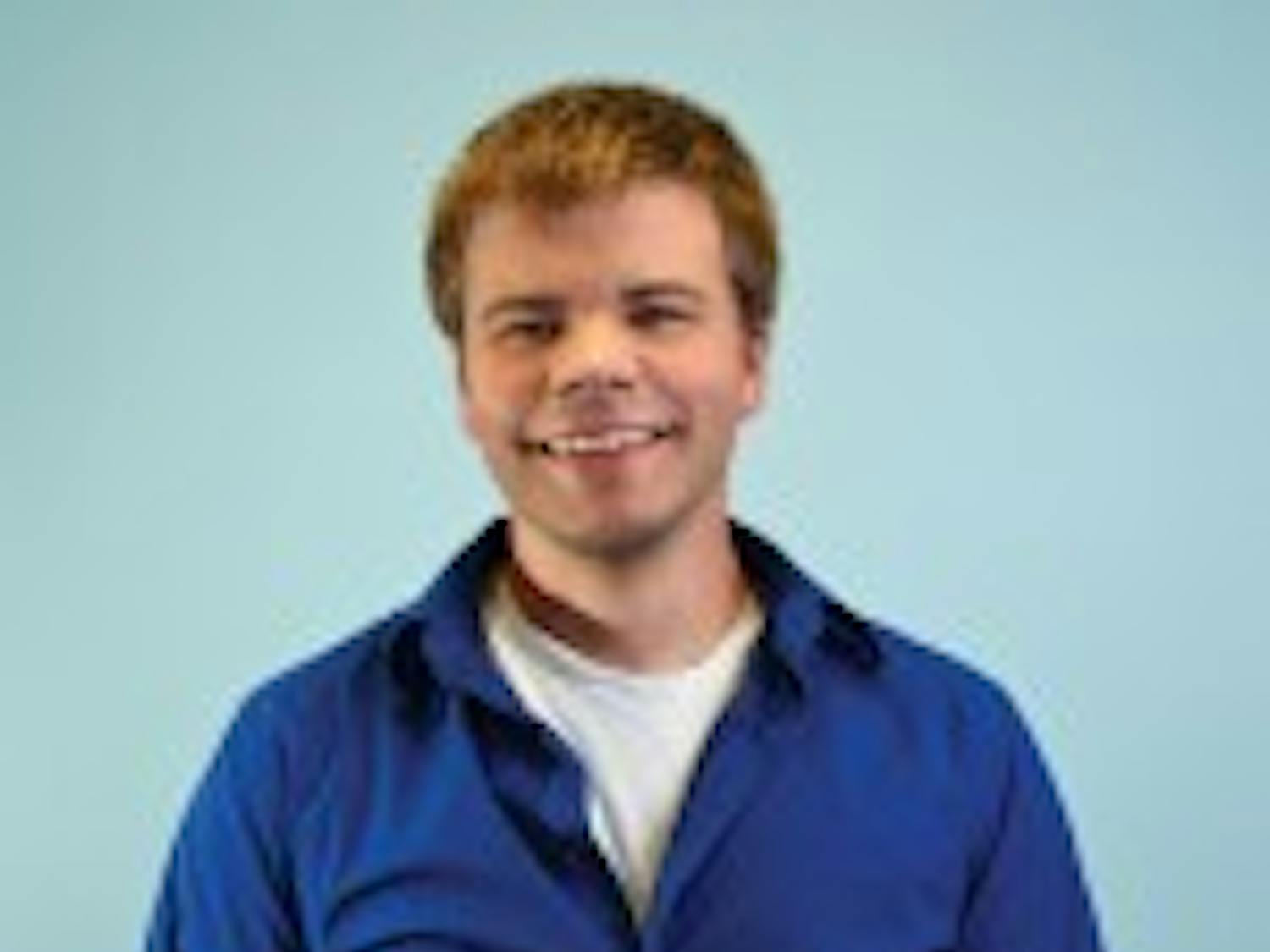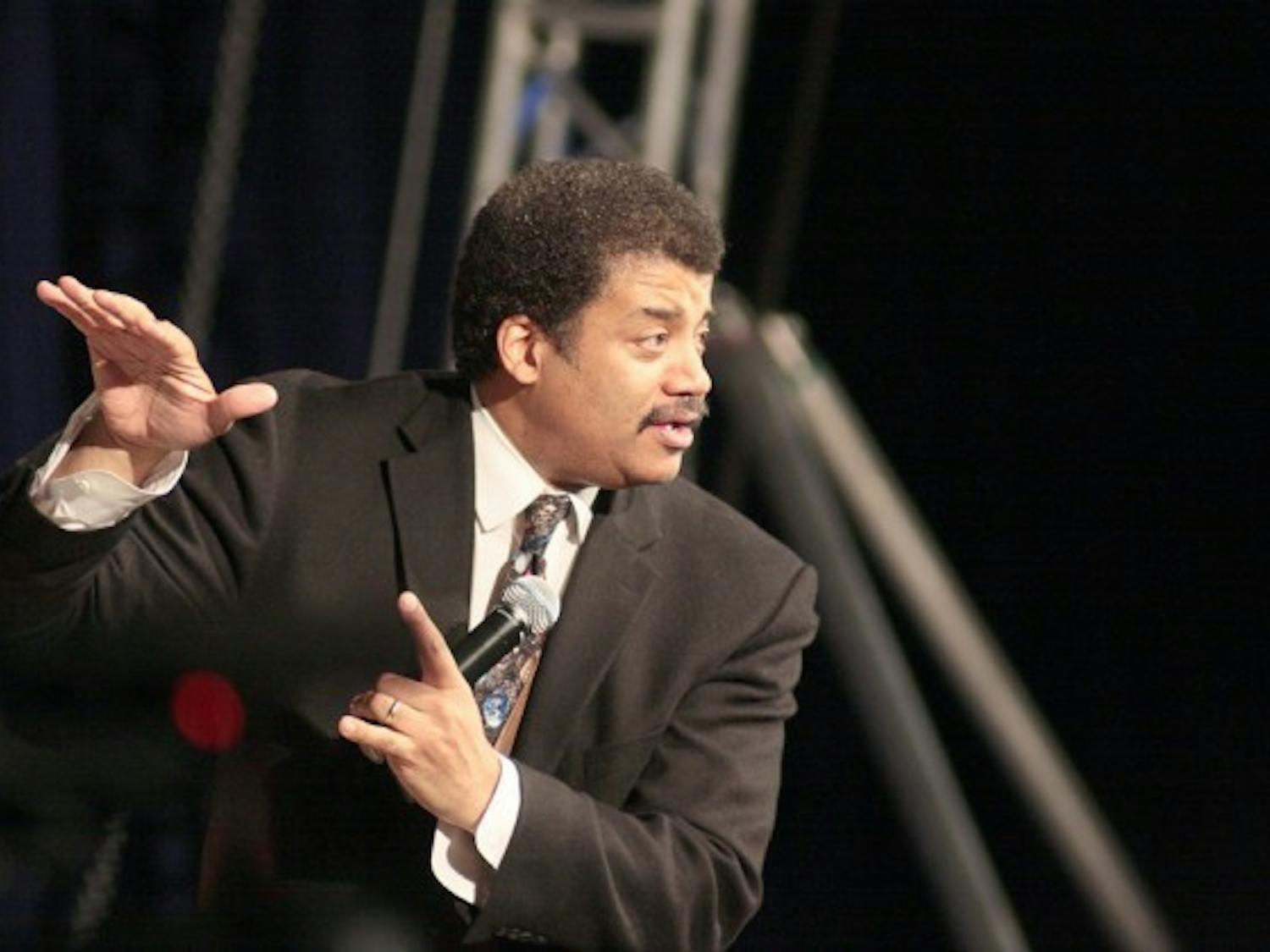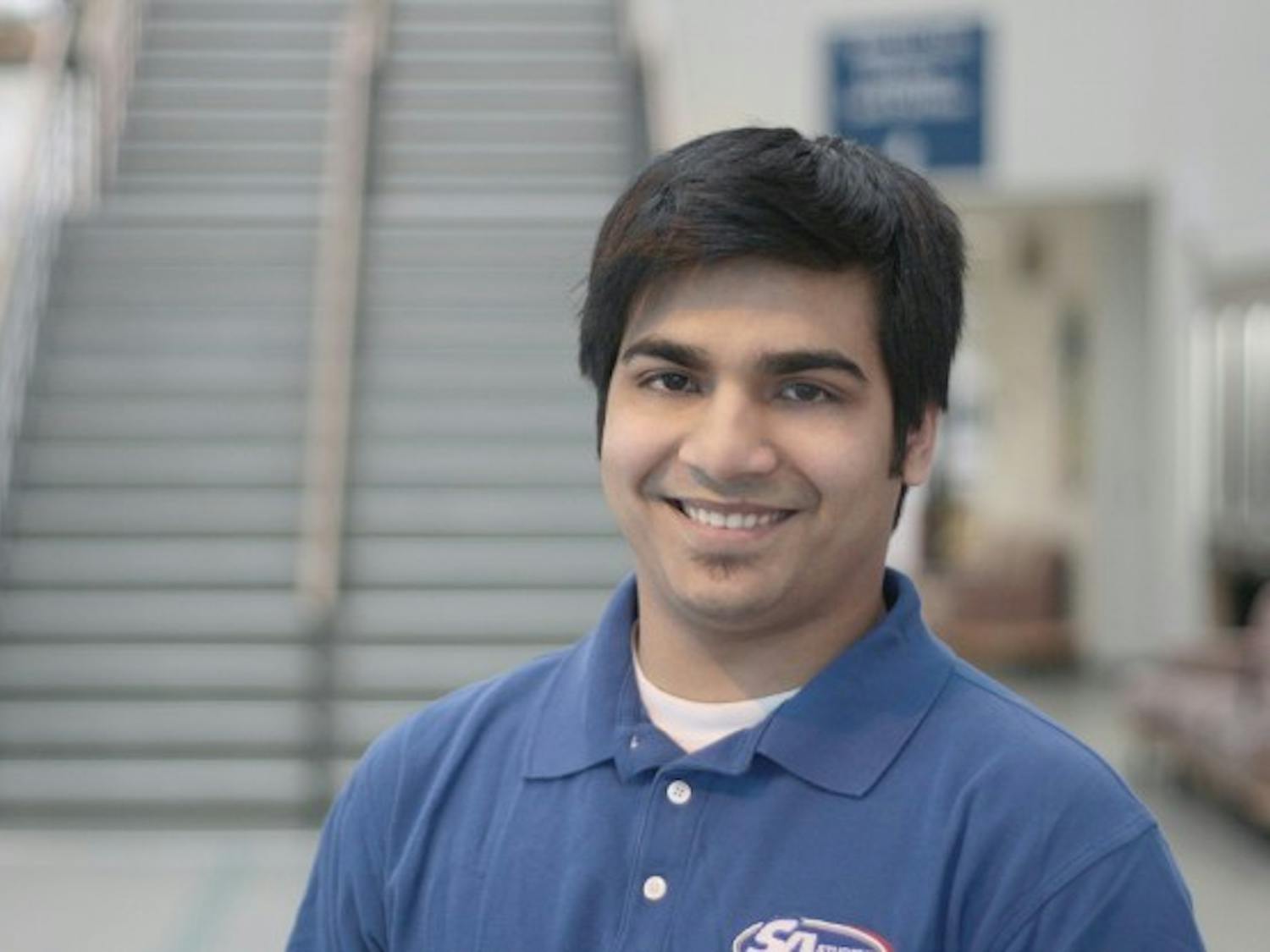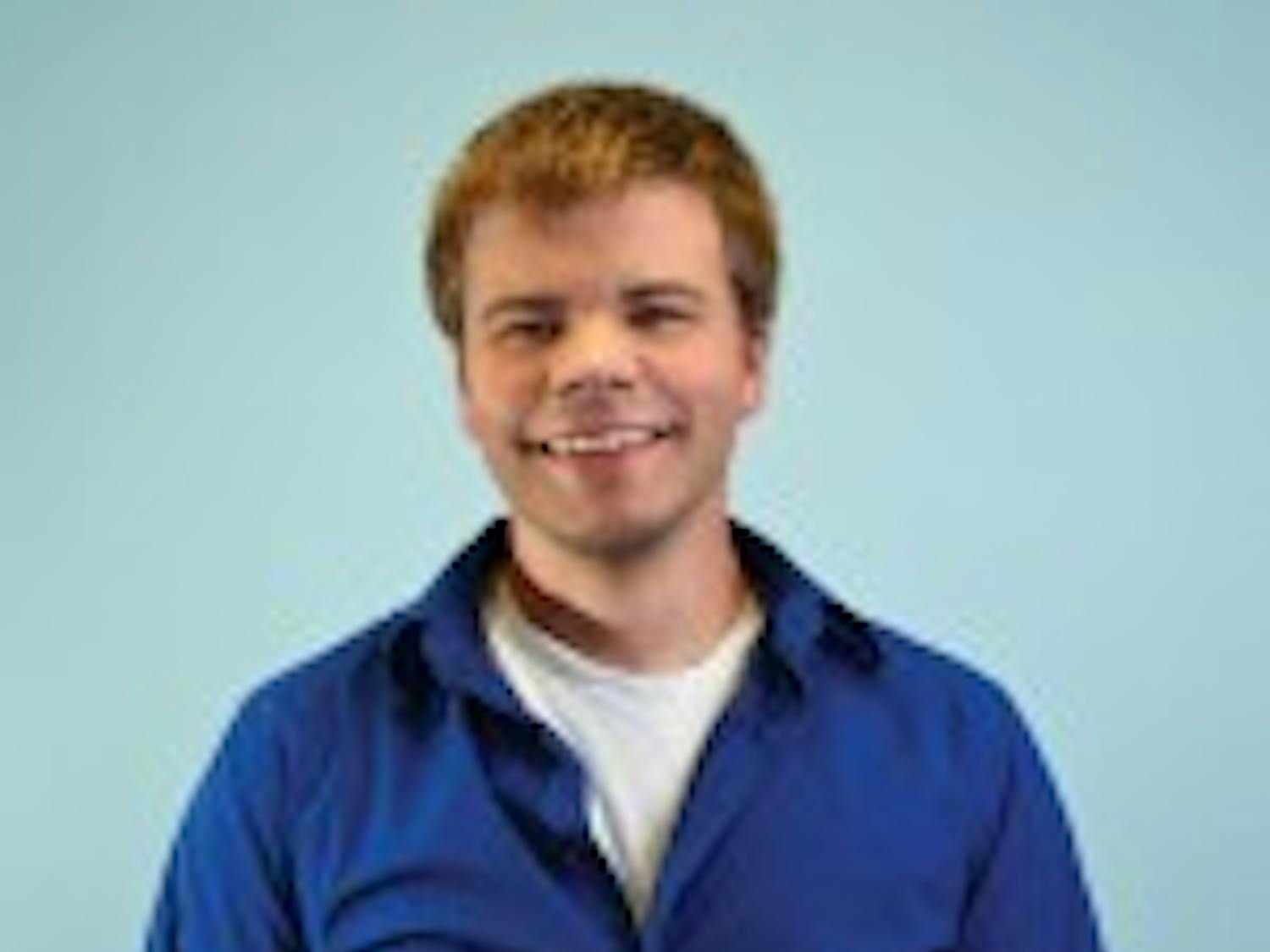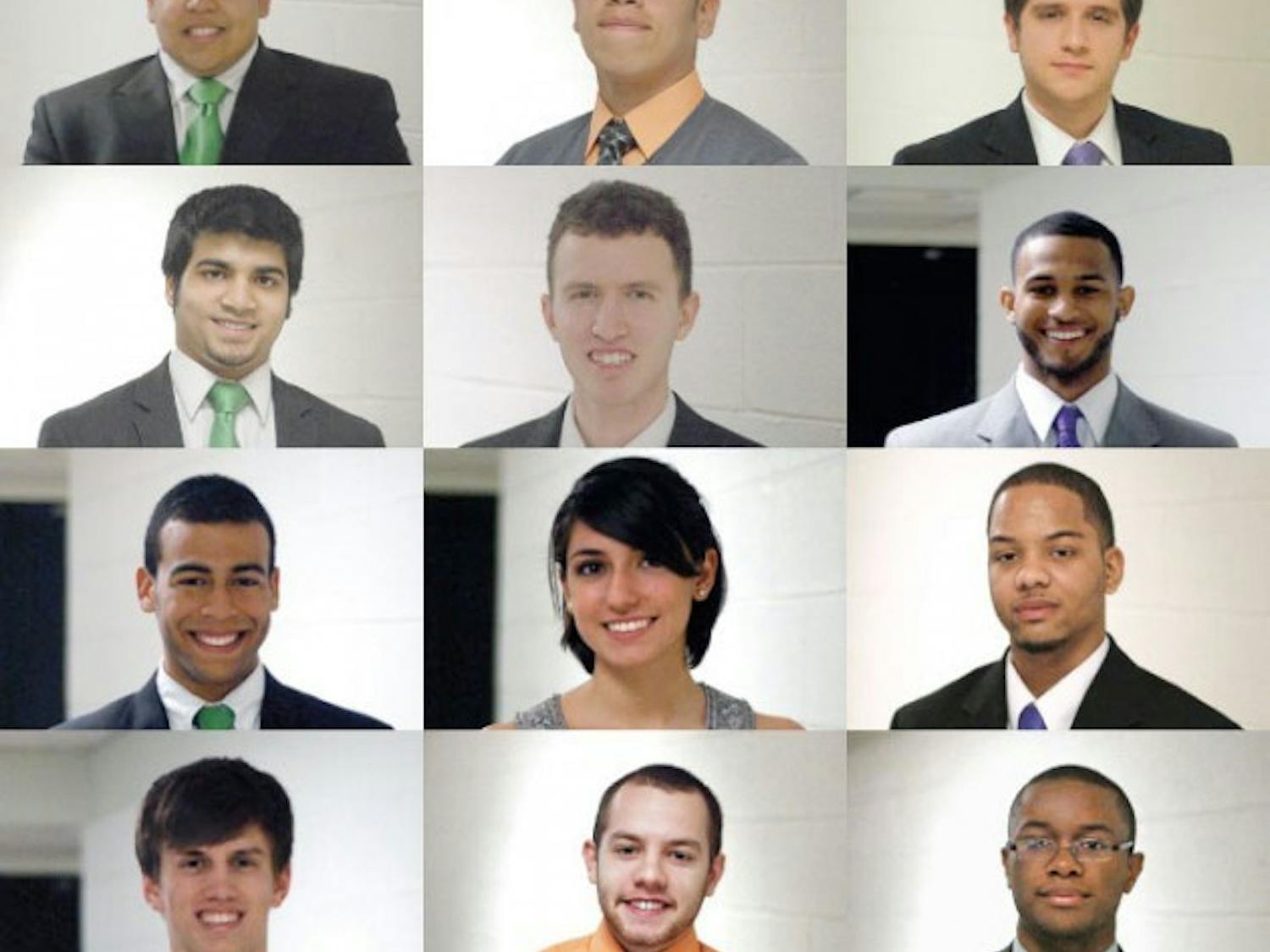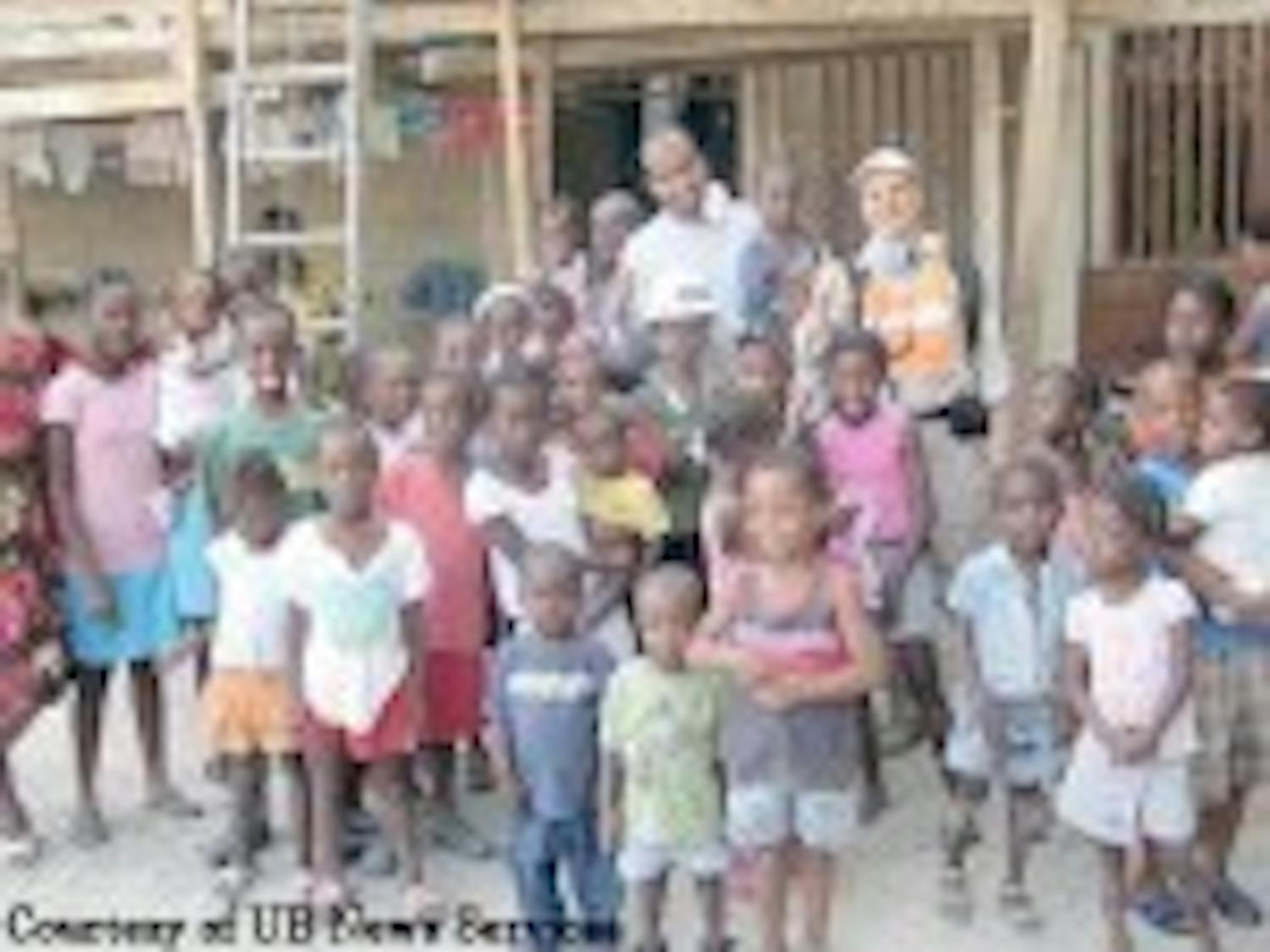NEWS
By Matt Mosher
|
Apr. 1, 2010
Neil deGrasse Tyson is one of the lead men responsible for declassifying Pluto as our solar system's ninth planet.
Yet, Tyson is perhaps the most famous living astrophysicist. He is the director of the Hayden Planetarium in New York City, host of NOVA scienceNOW and a graduate of Harvard, University of Texas at Austin and Columbia University. He was also People Magazine's "sexiest astrophysicist".
The resulting debate stirred up protestors, hate mail and left a permanent mark on Tyson's career.
I was invited to an informal question and answer session and prior to his presentation at Alumni Arena. I spent nearly an hour and a half with the distinguished scientist as we talked about TV, Buffalo, his love for pens and of course science.
The guest list to the Q&A included children from local grade schools and members of UB's physics clubs. Basically, I was surrounded by brainiacs of all ages and I felt quite out of place.
The 6-foot-2-inch scientist strolled into 145A Student Union to a round of applause. His style was quite casual, matching the atmosphere of the room. Tyson's dark jeans matched his charcoal gray sport coat, which he wore over a beige vest and collared shirt that had the first few buttons undone.
The first question came from a fifth grader: "Why is Pluto no longer a planet?"
Tyson explained that nothing about Pluto has changed, saying the planet is that what it always has been. But what scientists have learned has changed.
With bigger and better telescopes, scientists have discovered many similar objects like Pluto, which resulted in a new classification for "dwarf planets."
"Pluto is much happier now," Tyson said. "It's the first in a class of new objects."
He followed with a story of the time he appeared on The Today Show and Al Roker said comparing Pluto to other planets would be like comparing a regular size car to a Mini-Cooper. But, according to Tyson, this was far off.
"The realistic comparison [of Pluto to Earth] would be to compare the size of a matchbox car to a regular car," Tyson said.
After a few more questions regarding Pluto, a young girl wondered why every star doesn't have a name.
Tyson said about two-thirds of visible stars have names and said it's difficult to name every star. He explained that when a telescope is used, that even more stars become visible. With even bigger telescopes, stars are so abundant that it is impossible to name them all.
"There aren't enough names in the history of Earth to name all the stars," Tyson said. He added that many names of stars have Arabic names because the first people to actively name them were people in the deserts of the Middle East.
He went on to explain how the first cultures to discover something in science typically name things accordingly, which is why constellations have Roman names and why recently discovered heavy elements on the periodic table have American names.
After the session ended, I spotted Bill Regan, the director of special events. He had gotten me in this conference and I was relying on him to set up the next steps.
A car ride was in order. I'd be accompanying the pair, along with a few others, on Tyson's trip back to the Center for the Arts.
The vehicle was a university-owned Dodge Caravan. A few of us piled in like we were off to soccer practice and I was ready to fire away a few questions to Tyson, who took shotgun in the van.
As we were getting situated, I asked Tyson if he was more of a Star Wars or Star Trek fan when he was younger.
"Star Trek, for sure," Tyson said. "It was on TV and was all about space and exploring new frontiers." He knew at a young age he wanted to focus his life and career on matters beyond Earth.
"I couldn't believe people wanted to do anything else, like be lawyers or accountants. This stuff is cool stuff," he said after talking about his inspirations to study the heavens.
One of many reasons came from visits to the Hayden Planetarium in Tyson's hometown of New York City. The planetarium resides in the Museum of Natural History, the same setting for Night at the Museum.
I asked where his favorite place in the world was to stargaze.
"Inside a planetarium," he said very quickly. "It gives you the best night sky. The only other thing better is getting way into the countryside. A good way to analyze if a place is good for looking at stars is by checking your cell phone service. If it's really bad, then [observing] will be good."
As the mini-van pulled onto Putnam Way and we headed to Alumni Arena for a sound check, I asked Tyson which one of his many talk show appearances were his favorite.
"The Tonight Show with Jay Leno was my biggest achievement," Tyson said. "It's rare that he has a scientist on as a guest … it was a great opportunity to talk about breakthroughs in the space frontier."
The two-minute ride was over already and we walked into an empty Alumni Arena. Tyson was led up to the stage. Nobody stopped me from following.
Tyson came prepared, setting up his own Macbook, leaving the A/V team to stand around. "Do you need a VGA adapter for that?" a technician asked.
"Now, who do you think you're talking to here?" Tyson replied jokingly, pulling the device out of his black bag.
Tyson is not afraid to label himself as a geek, nerd or dweeb. During the Q&A, a student wearing a physics-related shirt asked a question. Tyson started by complimenting the shirt and saying, "It might not get you a lot of girls, but you wear it proudly."
The black NASA bag he pulled the adapter from was home to pocket after pocket, some which had more zippers within them. The bag was as endless as a black hole.
"I couldn't even begin to tell you what I have in there," Tyson said.
When testing the equipment, a sneak-peek into the entertaining night to come was evident in Tyson's behavior. He commands the stage and was not afraid to make a sudden outburst or to express the importance of something through exaggerated hand or body motions. This was just practice.
During the microphone check, he made clear that the sound technicians should not adjust the microphone while he was speaking.
"I really like to get loud for effect, I can tell if you're adjusting it and I will just have to talk even louder. Then I'll lose my voice," Tyson said to a technician whose walkie-talkie came in clearly with someone on the other end saying, "We need to tweak it a little." Tyson heard this, then spoke directly into the mic: "Tweaking is good, I like tweaking, testing, testing, one, two, three."
As he was leaving the stage, he turned and saw the big golden bull set behind the podium and asked if it had a name as he tapped its head.
"It's Victor," I told him.
"Victor?" he replied.
"Yeah, Victor E. Bull."
He started laughing. "That's pretty good."
We walked off the stage, down a few dark steps, then past an area filled with expensive gadgetry – dials, meters, buttons, boxes I couldn't name and laptops, all controlling the sound, video, PowerPoint, lighting and everything else that was scheduled to happen that night.
These technicians and this equipment are the unseen and underrated backbone to every one of these events. They're hard at work, testing everything to the point of perfection, assuring all will run flawlessly.
Back into the van, we were down to three now. I wondered if he had the chance to get some chicken wings while in Buffalo.
He had. For lunch he stopped at Lake Effect Diner and ordered chili, then realized he couldn't leave Buffalo without trying the one food the city is so popular for.
"It's really a compliment to Buffalo to be known for something so good," Tyson said.
We pulled up to the back doors of the Center For the Arts. Tyson said I could join him while he signed some books. We talked about the impact technology and computers have had on astronomy over time. I asked him about the Large Hadron Collider.
But what really caught my attention was his collection of pens. The man loves fountain pens. In fact, he collects them, especially pens with cosmic themes. And the things are heavy, too, with as much density as a white dwarf – making the average Papermate feel like a speck of cosmic dust.
"To keep me writing, I will buy a new pen after every new book contract," Tyson said. "I just can't justify buying a pen without it … these [pens] range from $300 to $2,000."
He moved the sledgehammer of a pen like it was weightless and signed the last book. Our time had concluded, he was off to a reception upstairs and I was left to think about what a diverse character the man who killed Pluto is.
E-mail: matt.mosher@ubspectrum.com

